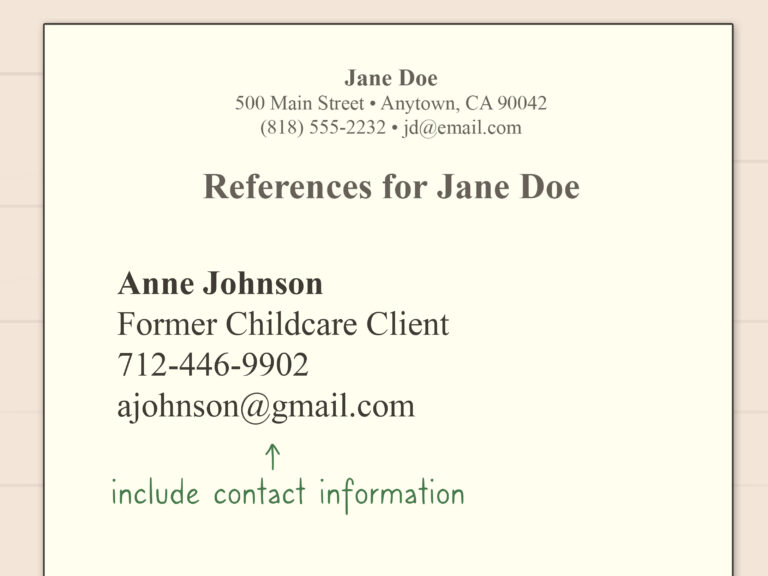What Is An Almond Mom: A Comprehensive Guide To Understanding This Unique Parenting Style
In the realm of parenting, various approaches exist, each with its own distinct characteristics and values. Among these, the term “Almond Mom” has emerged, sparking curiosity and interest. This guide aims to delve into the world of Almond Moms, exploring their definition, parenting style, impact on child development, and the social and cultural context that shapes their role. By shedding light on this unique parenting approach, we hope to provide a comprehensive understanding of its intricacies.
Almond Moms are known for their unwavering commitment to providing a nurturing and supportive environment for their children. They prioritize emotional connection, open communication, and fostering a sense of independence and self-reliance in their little ones. Their parenting style is characterized by a balance of warmth, firmness, and a deep understanding of their children’s needs and developmental stages.
Definition and Characteristics of an Almond Mom
An Almond Mom is a term used to describe a mother who is perceived as being overprotective and overly involved in her child’s life. The term originated from the idea that almonds are a healthy and nutritious food, but can be harmful if consumed in excess. Similarly, an Almond Mom’s intentions may be good, but her excessive involvement can have negative consequences for her child.
Some characteristics of an Almond Mom include:
- Being overly involved in her child’s life, from making all their decisions to controlling their every move.
- Being overprotective, worrying excessively about her child’s safety and well-being.
- Having unrealistic expectations for her child, expecting them to be perfect and never make mistakes.
- Being critical of her child, always finding fault with them and never being satisfied with their accomplishments.
Parenting Style and Values
Almond Moms are known for their distinctive parenting style that emphasizes nurturing, empathy, and open communication.
Their parenting approach is guided by a set of core values, including:
Unconditional Love and Acceptance
- Almond Moms prioritize creating a home environment where children feel loved and valued for who they are, regardless of their achievements or behavior.
- They believe in fostering a strong parent-child bond built on trust, respect, and open communication.
Nurturing and Empathy
- Almond Moms are highly attuned to their children’s emotional needs and strive to provide a nurturing and supportive environment.
- They emphasize empathy and understanding, encouraging their children to express their feelings openly and to consider the perspectives of others.
Positive Discipline and Boundaries
- While Almond Moms prioritize nurturing and empathy, they also believe in setting clear boundaries and enforcing age-appropriate discipline.
- They focus on positive reinforcement and natural consequences to guide their children’s behavior and foster self-discipline.
Open Communication and Collaboration
- Almond Moms encourage open and honest communication with their children, creating a safe space for them to discuss their thoughts, feelings, and concerns.
- They value collaboration and seek to involve their children in decision-making and problem-solving, fostering independence and responsibility.
Mindfulness and Self-Care
- Almond Moms recognize the importance of self-care and mindfulness in their own lives.
- They prioritize their own well-being and set boundaries to prevent burnout and maintain a healthy balance between parenting and personal needs.
Role in Child Development
Almond Moms play a crucial role in shaping their children’s development, nurturing their emotional well-being, social skills, and intellectual growth.
Their authoritative parenting style, which combines warmth and firm boundaries, fosters a secure and supportive environment for children to thrive.
Emotional Development
Almond Moms prioritize their children’s emotional needs, providing a safe and loving space for them to express their feelings.
- They encourage open communication and active listening, helping children develop emotional literacy and self-awareness.
- By setting clear expectations and providing consistent guidance, they help children learn to regulate their emotions and cope with challenges.
Social Development
Almond Moms emphasize the importance of social interaction and encourage their children to build positive relationships.
- They foster a sense of community and belonging by involving their children in family activities and extracurricular groups.
- By setting a good example of empathy and compassion, they teach their children the value of kindness and respect for others.
Intellectual Development
Almond Moms recognize the importance of intellectual stimulation and encourage their children to explore and learn.
- They provide access to educational resources, such as books, toys, and games, and encourage their children to ask questions and engage in critical thinking.
- By fostering a love of learning, they help their children develop a lifelong passion for knowledge and exploration.
Social and Cultural Context
Almond Moms, a relatively new term, reflect the evolving social and cultural landscape of parenting. Historically, mothers were primarily responsible for child-rearing, often adhering to traditional gender roles. However, with the rise of dual-income families and changing societal norms, fathers have become more involved in parenting, leading to a shift in parenting dynamics.
Historical Evolution
Traditionally, mothers were expected to be the primary caregivers, nurturing and providing emotional support for their children. Fathers, on the other hand, were often seen as the breadwinners and disciplinarians. This division of roles was influenced by cultural norms, religious beliefs, and economic factors.
In recent decades, however, there has been a gradual shift towards more egalitarian parenting practices. Fathers are increasingly taking on a more active role in childcare and nurturing, while mothers are pursuing careers outside the home. This change has been driven by factors such as increased female education, economic independence, and changing societal attitudes towards gender roles.
Societal Expectations
Despite the progress towards more egalitarian parenting, societal expectations can still shape the role of Almond Moms. In some cultures, mothers may face pressure to conform to traditional gender roles and prioritize their children’s needs over their own. This can lead to feelings of guilt or inadequacy if they choose to pursue their own interests or careers.
On the other hand, Almond Moms may also face criticism or judgment from those who believe that they are neglecting their children or prioritizing their own needs over their family’s. It is important for Almond Moms to find support from their partners, family, and friends who understand and respect their choices.
Comparisons and Contrasts
Almond Moms are not the only parenting approach, but they stand out due to their unique blend of warmth and structure. In comparison to other parenting styles, Almond Moms offer a distinctive perspective on child-rearing.
One notable contrast is with the authoritarian parenting style. Authoritarian parents prioritize obedience and control, often resorting to strict discipline and punishment. Almond Moms, on the other hand, emphasize open communication and mutual respect, aiming to guide their children rather than dictate their actions.
Another comparison can be drawn with permissive parenting. Permissive parents grant their children excessive freedom and avoid setting limits. Almond Moms, while providing warmth and affection, still establish clear boundaries and expectations for their children’s behavior.
In terms of outcomes, children raised by Almond Moms tend to exhibit high self-esteem, strong social skills, and academic achievement. They also demonstrate resilience and adaptability, as they are encouraged to develop independence and problem-solving abilities.
Challenges and Criticisms

Almond Moms face several challenges and criticisms, including:
– Perfectionism and pressure: Almond Moms strive for perfection in their parenting, which can lead to excessive pressure on themselves and their children. This pressure can result in anxiety, stress, and unrealistic expectations.
– Lack of spontaneity: Almond Moms’ focus on planning and structure can limit spontaneity and creativity in family life. Children may feel restricted or stifled by the rigid schedules and rules.
– Overindulgence: Almond Moms’ desire to provide the best for their children can sometimes lead to overindulgence. Children may become accustomed to receiving excessive material possessions or attention, which can hinder their development of independence and self-reliance.
– Limited social interaction: Almond Moms’ focus on homeschooling and extracurricular activities can reduce their children’s opportunities for social interaction with peers. This can limit their development of social skills and hinder their ability to navigate different social situations.
– Burnout: Almond Moms’ constant efforts to maintain a high level of parenting can lead to burnout. They may experience exhaustion, resentment, and difficulty in maintaining their own well-being.
Evolution and Future Perspectives
The Almond Mom parenting style has evolved over time, reflecting societal changes and shifts in parenting norms. In the past, Almond Moms were primarily stay-at-home mothers who prioritized their children’s academic and extracurricular achievements. Today, many Almond Moms are working professionals who balance their careers with their family responsibilities.
Emerging trends suggest that the Almond Mom approach is becoming more flexible and adaptable. Parents are increasingly recognizing the importance of fostering independence and resilience in their children. They are also embracing a more holistic approach to parenting, focusing on the child’s emotional and social development alongside their academic achievements.
Future of Almond Mom Parenting
The future of Almond Mom parenting is likely to be shaped by several factors, including:
- Changing demographics: As more women enter the workforce, the number of working Almond Moms is expected to increase.
- Advances in technology: Technology is playing an increasingly important role in parenting, providing new tools for Almond Moms to stay connected with their children and manage their time.
- Increased awareness of mental health: Parents are becoming more aware of the importance of mental health and well-being, and this is likely to influence their parenting styles.
Helpful Answers
What are the key characteristics of an Almond Mom?
Almond Moms are typically warm, nurturing, and supportive, while also being firm and consistent in their parenting. They prioritize open communication, emotional connection, and fostering independence in their children.
How does the parenting style of Almond Moms compare to other approaches?
Almond Moms differ from other parenting styles in their emphasis on open communication, emotional connection, and fostering independence. They are less likely to rely on strict discipline or punishment, and instead focus on guiding their children through positive reinforcement and open dialogue.
What are the potential challenges faced by Almond Moms?
One potential challenge faced by Almond Moms is the perception that they are too lenient or permissive. They may also face criticism for not adhering to traditional parenting norms. Additionally, the emotional investment required in this parenting style can be demanding.





